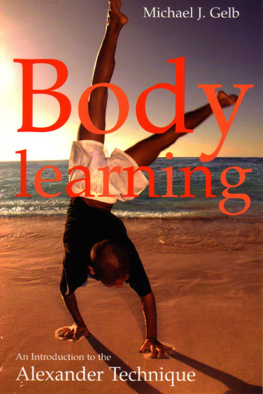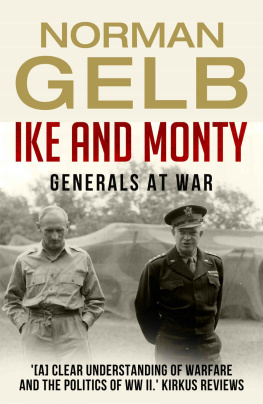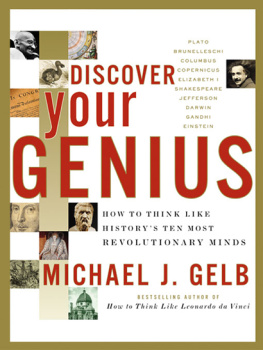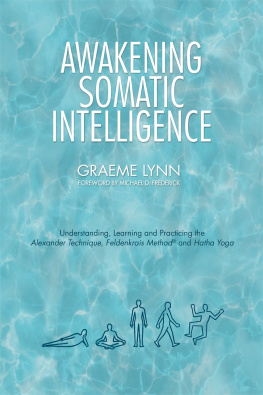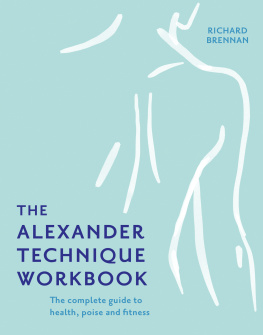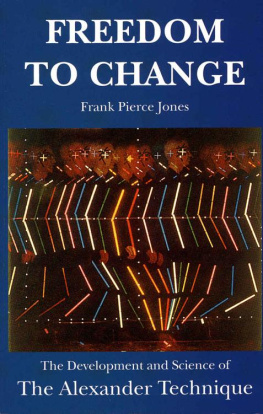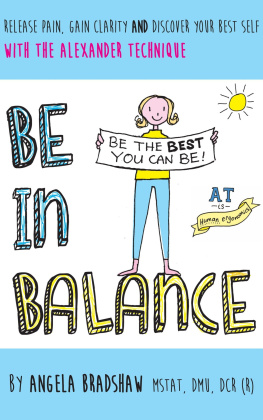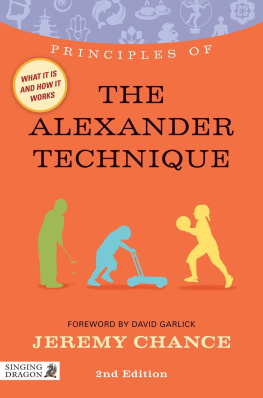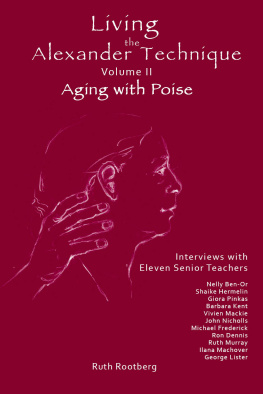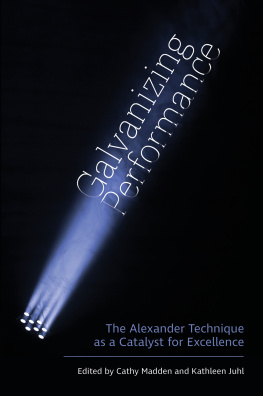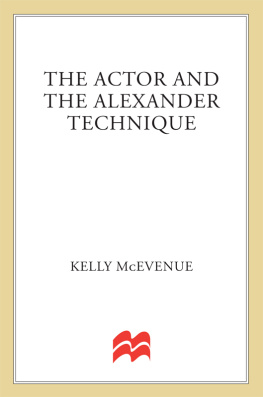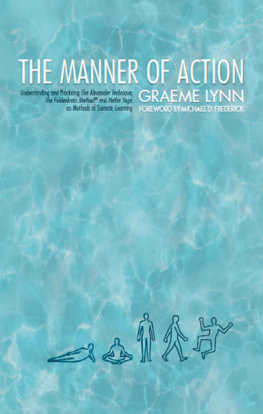
TO MY PARENTS AND GRANDPARENTS
Preface to
the new
edition
In the Preface to the new edition of Mans Supreme Inheritance, published in 1945, Alexander suggested that many of humanitys problems were attributable to our inability to deal with a quickly changing environment. Since then, the pace of change has accelerated enormously. Yet Alexanders prescription for meeting the challenges of change has become more relevant than ever. He wrote in the same Preface: It is what man does that brings the wrong thing about, first within himself and then in his activities in the outside world, and it is only by preventing this doing that he can ever begin to make any real change. In other words, before man can make the changes necessary in the outside world, he must learn to know the kind of doing he should prevent in himself, and the HOW of preventing it. Change must begin in his own behaviour.
Alexanders emphasis on individual responsibility and prevention is the point of departure for understanding and applying his work. Body Learning is intended as inspiration and guidance for those who consider commencing this journey, and as refreshment for those who have been travelling it for a while.
Since Body Learning was first published in 1981, readers have asked many questions about the Alexander work. Some are relatively simple: How many lessons will I need? or What is the difference betwen the Alexander Technique and the Feldenkrais method? Others are more complex: How does the Alexander Technique affect the emotions? or Can the Alexander Technique improve my interpersonal relationships? In this new edition Ive included my replies to these and many other most commonly asked or interesting questions.
In the first edition I reported on my experience of applying the Alexander Technique to activities ranging from learning to juggle and riding a unicycle, to singing and writing. This new version includes descriptions of applying the Technique to learning to swim, learning the martial art of aikido and building my career as a speaker, seminar leader and organizational consultant. Ive also included an Appendix which offers some thoughts on the application of the Alexander work in facilitating organizational change. This new edition also includes instructions on how to practice a very useful procedure for freeing yourself from unnecessary tension. It is called the balanced resting state procedure and I hope you find it helpful.
The original idea of Body Learning was to provide readers with a whole-brained introduction to the Alexander Technique: carefully chosen words to stimulate your left-brain and inspiring photographs to nourish your right-brain. Thanks once again to the brilliant photo-research of Bridget Belgrave and the efforts of Aurum Press, the right-brain effort has been given even more complete expression. We have taken the best photographs from the first two editions and combined them with some new offerings. Thanks to: Frank Ottiwell, Riki Alexander, Gabrielle Czaja and Michael Frederick for feedback on the new material; to Beret Arcaya for wonderful lesson exchanges; to Jim MacKenzie for his fine photography. Special thanks to Karen Ings for her help in creating this new edition.
Foreword to
the second
edition
Cast away opinion: thou are saved. Marcus Aurelius is not alone in advising us to let go, to be free, fresh, new to be present. But opinions are not only an intellectual, conscious decision. Opinions are often based on the earliest unconscious conditioning involving our real or imagined safety and even survival. Opinions are deeply entangled in our muscles, in our bones, in our cells. How can such a deep change as casting away opinions take place? How do we differentiate between opinions that are necessary and those that are inappropriate?
Techniques for self-improvement and liberation have been with us for centuries, in the last thirty years a bounty of them has flowered. This abundance presents us with the puzzling choice between being their victims or their beneficiaries.
The Alexander Technique reaches the heart of the question and it does so most subtly: a few words, no calisthenics, no dogma. In this book, each facet of the Work is presented in clear and easy form a particularly difficult task when describing non-verbal experience. The illustrations are magnificent and illuminating.
Going to church on Sunday is not the essence of religion. Similarly, there is no specific activity which is the essence of the Alexander Technique, for it applies to all living. In the outstanding chapter Learning How to Learn, Gelb shows how the Alexander principle is applicable to juggling, speedreading, singing, running and other totally diverse activities.
The Alexander Technique is not a method to accumulate information nor the art of learning something new. It is, instead, the art of unlearning, which is much more subtle and, sometimes, a more difficult endeavour unlearning that which is habitual, instead of natural; letting go of old patterns and of those repetitious opinions arrived at in times and circumstances totally different from those of the present.
Aldous Huxley, my late husband, was enamoured of knowledge but he was also a master in the art of unlearning.
Maria, Aldouss first wife, wrote to their publisher who had asked if Aldous knew Alexander:
... not only does Aldous know about Alexander but goes to him each day since Autumn. He believes he has made a very important, in fact, essential discovery. He certainly has made a new and unrecognizable person of Aldous, not physically only, but mentally and therefore morally. Or rather, he has brought out, actively, all we, Aldous best friends, know never came out either in the novels or with strangers.
In 1950, Aldous wrote to the French writer Dr Hubert Benoit:
... still better were those techniques developed in England by F.M. Alexander, whose books are well worth reading. Alexander discovered empirically, in experimentation on himself, that there is a correct or natural relationship between the neck and the trunk and that normal functioning of the total organism cannot take place except when the neck and the trunk are in this right relationship. His findings have been confirmed theoretically by various physiologists and, in practice, in the persons of the numerous pupils he has taught during the last forty-five years. (I myself am one of his pupils.) For some obscure reason the great majority of those who have come in contact with urbanized, industrial civilization tend to lose the innate capacity for preserving the correct relation between the neck and trunk, and consequently never enjoy completely normal organic functioning. Alexander and the teachers he has trained re-establish the correct relationship and teach their pupils to preserve it consciously. This, as I know by experience, is an exceedingly valuable technique ... practising this awareness makes it possible for the physical organism to function as it ought to function, thus improving the general state of physical and mental health.
For myself, being made aware of the Alexander work and applying it (when I do!) is one of the great gifts Aldous gave me.
LAURA HUXLEY
Los Angeles, California
Foreword
to the first
edition
A famous American author was once asked whether he had ever read any of F. Matthias Alexanders books. He replied, No, I dont read books. And then he paused and gave a slow smile and added: You see, Im a juggler with words myself.
Michael Gelb is a juggler too; and not only with words. How he came to be so, and to ride a unicycle, and to master a number of other practical skills, is part of the fascinating story told in this book.
Next page
